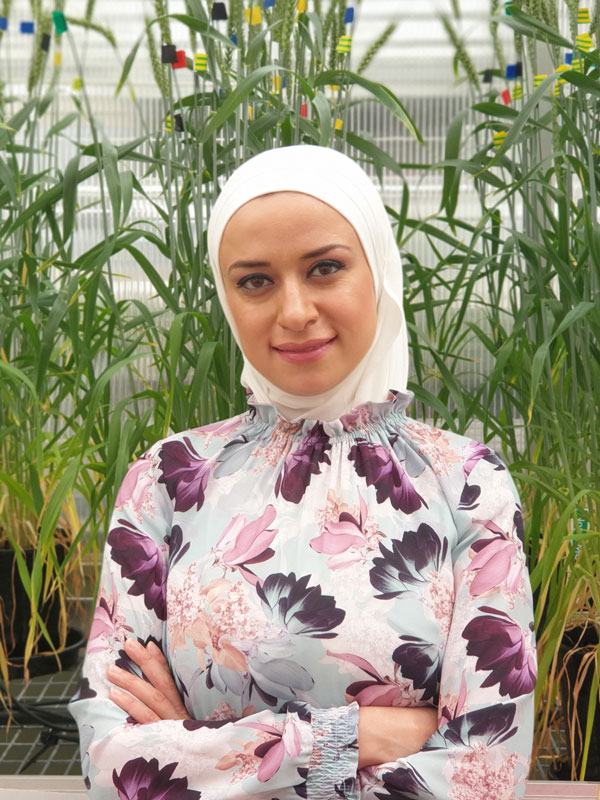Reem Joukhadar, Women in Triticum Early Career Award winner from Syria, is a research scientist at AgriBio, Agriculture Victoria, Australia within the computational biology group. Joukhadar’s current research focus is developing wheat cultivars with high grain yield, nutritional value, and ability to withstand future climate challenges using advanced molecular and computational tools. Joukhadar started her professional life at the International Centre of Agricultural Research in the Dry Areas (ICARDA) after obtaining her B.Sc. in Biotechnology from the University of Aleppo, Syria in 2010. Her research at ICARDA aimed to understand the genetic control of major traits in wheat and biotic stresses that limit grain yield. In 2019, Joukhadar obtained her PhD in molecular genetics with a joint project between La Trobe University and the molecular genetics group at AgriBio, where she used genomics to study the evolutionary history of Australian wheat as an introduced crop since European settlement in 1788. Her thesis provided a solid example on exploiting theoretical evolutionary concepts in planning future breeding programs with a practical example on improving the resistance to wheat rust diseases.
Connecting evolution with breeding to answer evolutionary questions that can have practical impact in real life is one of the most attractive research areas for Joukhadar. She is also interested in analyzing big agricultural data using novel statistical models to detect genomic variants controlling key agronomic, physiological, nutritional and stress resistance traits in wheat breeding and to inform better selection decisions to develop superior wheat cultivars that are resilient to climate change and can fight the “hidden hunger” of mineral malnutrition. She also contributed to several pre-breeding projects that aim to utilize wheat landraces and wild relatives in different national and international breeding programs. During her journey, Joukhadar has been involved in multiple international collaborations that led to prestigious publications, such as the durum wheat genome paper published in Nature Genetics in 2019, as well as multiple publications from the Seed of Discovery (SeeD) project led by CIMMYT.






